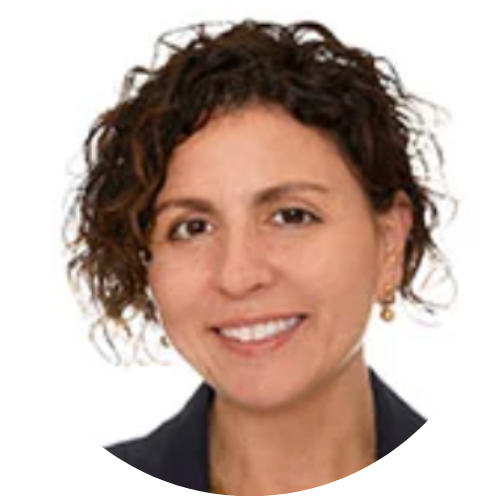Lessons Learned: Challenges of Implementing Differentiation
While differentiation offers tremendous benefits, it’s not without its challenges. One of the biggest hurdles leaders face is shifting mindsets as Michelle Simmons pointed out, "Whether it’s the science of reading, rolling out high-quality instructional materials, or differentiation, people power our work… So anytime we introduce something new, we just have to get that buy-in.”
For Erick, creating this environment starts with providing educators with the tools, resources, and professional development they need to succeed.“We are providing that sense of clarity and coherency for our educators across the system,” he shared.
“It’s about moving from compliance to understanding the 'why'—to develop student agency and independent thinkers who will be successful.” - Erick Casallas
When teachers have the right support and are actively involved in shaping their own professional learning, differentiation becomes more than just a teaching strategy—it becomes a mindset that influences how educators approach every aspect of their work.
Michelle highlighted a key lesson her district learned in flexibility when trying to implement a new initiative around high-quality curriculum aggressively. She shared, "We have fifty thousand scholars, eighty-plus schools. And so the curriculum of choice was a rather complicated one to unpack. So one of the big takeaways learned for us was that sometimes it's okay to start really narrow, really small, even if it's with a pilot." This approach made the process more manageable and allowed for meaningful adjustments along the way, ensuring that the district could scale effectively without losing sight of its ultimate goals.
Leveraging the Science of Reading to Drive Literacy Changes
Implementing the Science of Reading requires districts to reevaluate and align their literacy practices with evidence-based methods. The panelists emphasized that this transition demands more than new materials—it requires cultural and instructional shifts.
Michelle reflected on the importance of professional development, “Effective implementation requires training teachers to confidently integrate phonics, fluency, comprehension, and vocabulary into their instruction. Without adequate support, teachers can feel overwhelmed and inconsistent in their approach.”
Erick added that districts must be willing to face hard truths, “We need to be uncomfortable with the data—acknowledging gaps and using those insights to inform instruction and improve outcomes.” By focusing on strategic planning, strong data culture, and targeted professional learning, districts can leverage SoR practices to make significant gains in literacy achievement.
Revolutionizing MTSS: A Whole Child Approach
One common thread throughout the panel discussion was the importance of revolutionizing MTSS Multi-Tiered Systems of Support) to address both academic and social-emotional needs. Dr. Lynmara Colón emphasized that creating inclusive systems starts with belonging, “Differentiation is about belonging. It’s not about just being in a classroom, but really getting access to the experience we’re aiming to provide.” This sentiment reflects the evolving understanding of MTSS as a holistic framework, where students are supported not just academically but in their emotional and behavioral development as well.
In practice, this means rethinking traditional approaches to student support. Dr. Laila Olivarez shared how her district uses Problem-Solving Support Teams (PSSTs) to merge both academic and behavioral support into their MTSS framework, "so that we're actually addressing the whole child." This approach ensures that interventions are more comprehensive and address the root causes of barriers to learning rather than simply reacting to symptoms.
The success of this integrated approach relies heavily on collaboration between educators, counselors, and families. In this way, MTSS becomes a shared responsibility that goes beyond the classroom, ensuring that students receive the support they need to thrive in all aspects of their development.
Breaking Down Silos: Advocacy and Collaboration
The panelists agreed that effective systems change requires breaking down silos within districts and fostering collaboration across teams. Dr. Lynmara Colón highlighted the need for cross-departmental communication “Every role in the district must be viewed as a leader of students, from facilities to food services. Everyone plays a part in creating inclusive systems.”
This perspective was echoed by Michelle, whose district launched a Welcome Center to provide wraparound services for multilingual learners and their families. Her district found that by addressing practical needs like medical care and counseling alongside academic support, they were able to break down silos and create more inclusive and supportive environments.
“We’ve had to be very intentional and creative so that through the curriculum and professional development that we provide teachers, students can be seen" so that "we are providing access to all, not some." - Dr. Lynmara Colón
Overall effective collaboration means creating a culture where teachers and staff actively engage with one another to share best practices, resources, and strategies to cultivate a "shared understanding across all roles" as Erick Casallas noted. This could look like By developing systems that encourage educators to work together instead of in isolation, responsibilities become more streamlined and can collectively focus on meeting the needs of all students.
Practical Takeaways for District Leaders
Implementing the Science of Reading and fostering differentiation requires intentionality, collaboration, and a focus on the whole child. When it comes to applying these insights to adopt Science of Reading practices, district leaders should consider the following steps:
- Conduct Comprehensive Needs Assessments: Evaluate current literacy instruction methods to identify areas with improvement opportunities.
- Develop a Strategic Implementation Plan: Craft a detailed plan that includes timelines, resource allocation, and professional development schedules.
- Invest in High-Quality Instructional Materials: Select evidence-based resources that support SoR methodologies.
-
Foster a Collaborative Culture: Encourage collaboration among educators to share best practices and support one another during the transition.
-
Engage Families and Communities: Involve your community in the process to build trust and ensure alignment with student needs.
Implementing the Science of Reading methodology necessitates a systematic approach, ensuring that all educators are equipped with the right knowledge and tools. By prioritizing collaboration, clarity, and ongoing support, school districts can build systems that meet students where they are and empower them to succeed.
At Education Elements, we understand that implementing new initiatives for change can feel overwhelming, but with the right support, you can steer your district toward success. Ready to take the next step? Book a free consultation with one of our team members to explore how we can support your district's goals.






